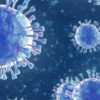
 IJCP Editorial Team
IJCP Editorial Team
Study Introduces New Health Indicators for Measuring Well-being
In a recent study, researchers have proposed a groundbreaking approach to assessing well-being by introducing new health indicators. The findings of this study not only have the potential to revolutionize healthcare practices but also contribute to the fulfillment of the United Nations' Sustainable Development Goal 3 (SDG3), which aims to ensure healthy lives and promote overall well-being for all individuals.
Traditionally, the measurement of progress towards SDG3 has relied on mortality and morbidity data, overlooking the multidimensional aspects of human health experiences. However, the study advocates for a comprehensive evaluation of human functioning, which encompasses both the physical condition of individuals and their ability to participate in activities that hold personal significance.
The researchers acknowledge the challenges associated with integrating functioning assessments into healthcare systems. They stress the need for increased awareness among healthcare providers, policymakers, and the general public about the benefits of this approach. Additionally, they propose the establishment of a new scientific field called "human functioning sciences" that combines various disciplines to deepen our understanding of health and inform future research, healthcare practices, and policy development.

IJCP Editorial Team
Comprising seasoned professionals and experts from the medical field, the IJCP editorial team is dedicated to delivering timely and accurate content and thriving to provide attention-grabbing information for the readers. What sets them apart are their diverse expertise, spanning academia, research, and clinical practice, and their dedication to upholding the highest standards of quality and integrity. With a wealth of experience and a commitment to excellence, the IJCP editorial team strives to provide valuable perspectives, the latest trends, and in-depth analyses across various medical domains, all in a way that keeps you interested and engaged.














Please login to comment on this article